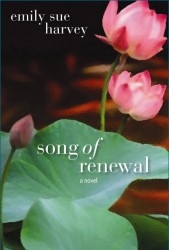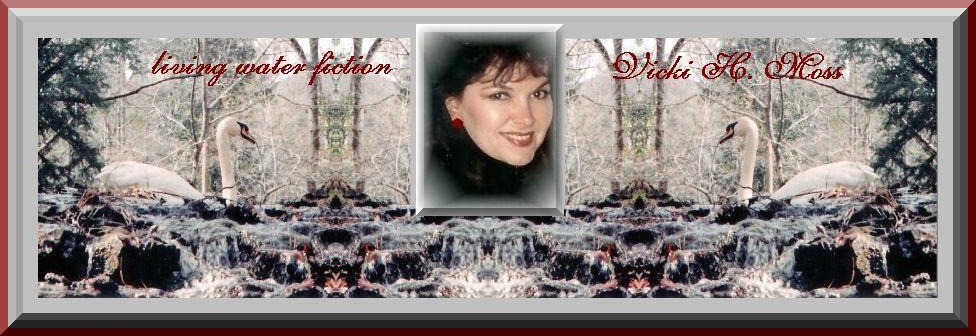Getting Back Into the Fray
by
Lou Aronica

As you’ve probably guessed from the title of this blog entry, I’m going to be writing about my opinion of the new album by The Fray. I feel that we don’t discuss pop music enough on this site and I think it’s time to rectify that. Actually, I wanted to talk to you a little about my experience getting back into the publishing side of the business after nearly a decade away (though, while the recording is disappointing overall, “You Found Me” is a nice mid-tempo single and “Enough is Enough” has a beautiful melody and some very poignant lyrics).
Last fall, agent Peter Miller and I launched an independent publishing imprint called The Story Plant. We’ve focused the company on the kind of publishing I always loved and, frankly, feel I was best at doing: developing commercial novelists from the early stages of their careers. Peter and I decided to do this because we felt that commercial novelists were getting an especially unfair shake in the industry and that the lack of commitment from publishers to the long-term growth of the writers they published was harmful to both writers and publishers.
We knew what we were doing was a challenge. After all, we weren’t trying to fill a niche; we were trying to build a small company around a kind of publishing that only big publishers had been successful with on a regular basis. We attempted to address this challenge by convincing ourselves, our authors, our distributor, and our accounts that we were planning to take everything slowly. We weren’t going to “blockbuster-ize” the writers on our list. Our goal was to start modestly and grow from book to book until we could make the leap with a writer onto the bestseller list.
We also knew that we would face roadblocks. We figured we’d encounter skeptical booksellers, even given my history as a publisher and Peter’s success in the book and film worlds. What we couldn’t have possibly anticipated was that we would be launching the company into the worst American economy in our lifetimes. That definitely wasn’t part of the business plan. When booksellers are trying to plug holes in their bottom lines, they aren’t interested in listening to your excitement over a novelist whose name they’ve never heard before.
Peter and I are going to be speaking at this year’s NINC conference about our experiences with The Story Plant and about how the publishing industry looks from our perspective, but I thought I’d give you a glimpse into what we’ve learned so far.
Platforms have become as important to new novelists as they are to nonfiction writers. Since most of you only write fiction, you might not know that publishers don’t want to look at a proposal for a nonfiction book unless the author has a large platform – a sizeable media presence. They feel this way because it has become increasingly difficult to get publicity for anyone who doesn’t already get a fair amount of publicity (yes, we’re all aware of the irony) and because booksellers won’t take a significant position on any nonfiction book unless the promise of heavy publicity is there. I hadn’t encountered the same with fiction in my earlier experience or in conversations with other publishers, but I’m now beginning to see signs of it. Booksellers don’t want to offer up promotional space (and I’m not talking about stacks on the front table, but rather any presence in the store beyond spine-out in the section) – even with generous co-op – to a new writer unless that writer already has some level of presence. This caught us off guard with our first list and we’ve been playing catch-up in this regard on our second list. As we move forward, though, we’re going to need to make a much more concerted effort to pre-promote our new writers. Essentially, we’re going to have to build an audience for our writers before we publish them. While I know that every NINC member has at least two published books under their belts, I think this thinking applies to any writer in the early stages of her career. Stay tuned for updates.

Our accounts don’t believe the hype. An old tradition in publishing is announcing an aggressive marketing plan and then waiting for the numbers to come in before actually embarking on that plan. If the numbers were too low, the publisher scaled back the marketing commitment. Everyone in the industry understood this (except, occasionally for the new writer whose editor didn’t warn her that the announced marketing plans were tentative). Now, though, booksellers just assume you aren’t going to do any of the marketing you say you’re going to do. This is especially true with Internet marketing. You can tell your accounts that you’ve hired the best Internet publicist in the business (which we did for an upcoming spring title) and that this publicist was going to get attention for the book of an equivalent size to feature pieces in Time magazine and USA Today – and they’ll simply shrug. I think booksellers are so convinced that publishers either won’t do the marketing they say they’re going to do or that they’ll do this marketing badly, that they just assume none of it will have an impact on sales. Hence, their desire to know a new writer’s platform and their reliance on their own co-op programs – which they will only offer to authors they believe can sell a lot of copies. Which leads me to the next lesson.
The catch-22 is more prevalent than ever. There was always some level of pretzel logic associated with selling new writers. You couldn’t get accounts excited about a writer if the writer didn’t have a track record and you couldn’t get the track record unless the accounts were excited. This mindset is now at a dangerous place for new writers. Buys at the major accounts for new fiction are often so low that there’s virtually no chance the book will have enough of a profile to generate sales. Hence, unless you “blockbuster-ize” an author’s first book (and how often can anyone do that, let alone a little independent house?), you have little chance of building the author’s audience for the next book.

Our approach to both of these last points is to spend and promote completely out of proportion to distribution. Our feeling is that we need to prove that the accounts can rely on us for promotion and that this promotion is going to drive consumers to the books, even when the books have modest retail presence. As I write this, I have no idea whether this will work or not. We have a hardcover book we love coming out in April. Distribution is modest. We’re spending a ton to promote it in spite of the modest distribution. Can we somehow generate enough excitement to promote consistent reordering and leave us with a nice sale for a first novel? I certainly hope so. Realistically, our best hope is probably getting a clean sell-through on the copies we’ve shipped so the accounts give us a better shot the next time. Since we’re in it for the long run with this writer, we can be happy with this level of progress, even if it makes our investors antsy.
This is all a bit of an adventure for me. I never thought I’d say, “Thank God for my writing career,” but that actually seems more predictable right now. One thing that hasn’t changed is how much I love doing this stuff – working with writers, developing publishing programs, pitching books at sales conference. Business conditions in the industry aren’t nearly as friendly as they once were, but we’ll keep slugging away with The Story Plant until they become friendlier or until they beat us into submission.
(This article was written three years ago and today Story Plant is thriving with new authors)
reposted by permission of Lou Aronica






